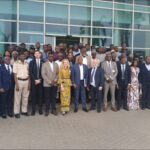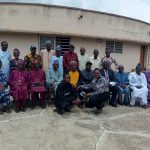From Taiye Joseph, Ilorin
Mubarak Nurudeen, a renowned expert in Online Dispute Resolution (ODR), has highlighted the importance of integrating technology into Nigeria’s legal system to enhance access to justice and streamline dispute resolution processes.
In an exclusive interview, Nurudeen shared insights on how his education and professional experience have shaped his vision for leveraging, technology to resolve legal disputes, particularly in developing economies like Nigeria.
Speaking on his academic background, Nurudeen, who holds a Bachelor of Laws from the University of Ilorin and a Master of Laws (LL.M) from Ohio State University in the United States, noted that his education in both Nigeria and the U.S. exposed him to the complexities of different legal systems.
He explained that while Nigeria’s legal framework provided him with a solid foundation, it also revealed challenges such as slow access to justice.
According to him, the future of dispute resolution lies in combining legal expertise with technological innovation.
ODR, as Nurudeen explained, uses technology such as video conferencing, digital case management, and artificial intelligence (AI), to facilitate faster and more cost-effective dispute resolution, particularly in cross-border cases. He acknowledged the growing popularity of ODR but pointed out challenges, including the lack of a unified legal framework across borders.
He emphasised the need for legal harmonization, particularly in developing economies, to ensure the enforcement of ODR decisions.
In discussing the potential of ODR in developing economies like Nigeria, Nurudeen highlighted the inefficiencies of traditional court systems, where civil cases often take years to resolve.
He argued that ODR, with its ability to operate without the need for physical courtrooms, could provide a more accessible and cost-effective solution, especially in rural areas with increasing internet penetration.
He called for investment in digital infrastructure, including high-speed internet and mobile-friendly platforms, to make ODR a reality for underserved populations in Nigeria.
Nurudeen also emphasized the importance of building trust in ODR systems and aligning legal frameworks with international standards.
He suggested that blockchain technology could play a crucial role in creating transparent and accountable ODR processes, while also advocating for the ratification of the Singapore Convention on Mediation to support cross-border enforcement of mediation agreements.
Looking ahead, Nurudeen predicted that the future of ODR would be shaped by innovations in AI and blockchain.
He believes AI could automate certain aspects of dispute resolution, while blockchain would enhance transparency and trust in the process.
He also speculated that ODR could extend to new areas such as the metaverse and virtual reality as more interactions move online.






